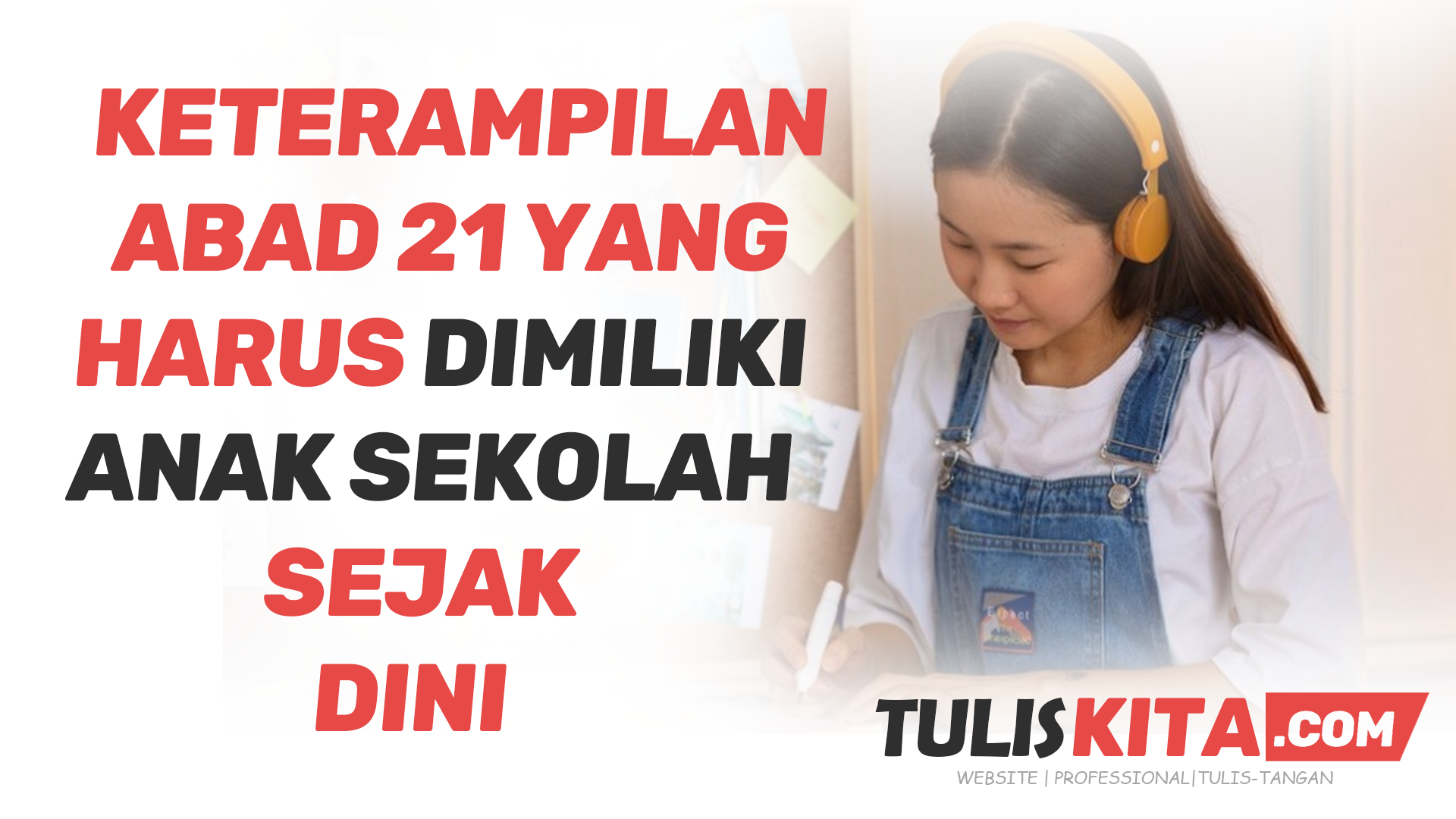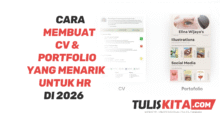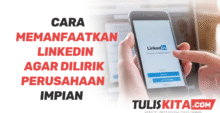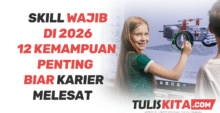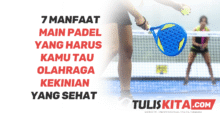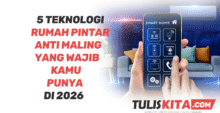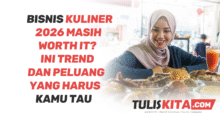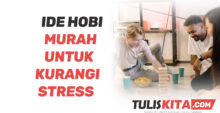TULISKITA.COM – Keterampilan abad 21 yang harus dimiliki anak sekolah sejak dini telah menjadi fokus utama dalam reformasi pendidikan global menghadapi era transformasi digital yang sangat cepat. Dunia kerja dan kehidupan sosial masa depan akan sangat berbeda dari apa yang kita kenal saat ini, sehingga mempersiapkan anak-anak dengan keterampilan yang tepat menjadi investasi terpenting bagi masa depan mereka. Pendidikan tradisional yang hanya fokus pada hafalan dan penguasaan konten akademik sudah tidak lagi cukup untuk mempersiapkan generasi mendatang.
Revolusi industri 4.0 dan kemunculan artificial intelligence, automation, dan teknologi disruptive lainnya menciptakan landscape pekerjaan yang completely berbeda. Jobs yang ada saat ini mungkin tidak relevan dalam 10-15 tahun ke depan, sementara profesi-profesi baru yang belum terbayangkan akan bermunculan. Dalam konteks ini, ability to adapt, learn continuously, dan think creatively menjadi lebih valuable daripada knowledge yang specific dan statis.
Educational systems di seluruh dunia mulai mengakui bahwa success dalam abad 21 tidak hanya ditentukan oleh academic achievement, tetapi juga oleh soft skills, emotional intelligence, dan ability untuk navigate kompleksitas dunia yang interconnected dan rapidly changing. Membangun foundation keterampilan ini sejak dini memberikan competitive advantage yang signifikan bagi anak-anak dalam menghadapi future challenges dan opportunities.
Mengapa Keterampilan Abad 21 Crucial untuk Masa Depan Anak?
Dunia kerja masa depan akan didominasi oleh jobs yang membutuhkan human creativity, emotional intelligence, dan complex problem-solving abilities yang tidak dapat digantikan oleh artificial intelligence. Keterampilan-keterampilan ini membutuhkan pengembangan jangka panjang dan tidak dapat dipelajari secara instant, sehingga early development menjadi sangat penting.
Globalization dan digital connectivity menciptakan environment di mana anak-anak akan berinteraksi dengan diverse cultures, work dalam virtual teams, dan compete dalam global market. Keterampilan komunikasi lintas budaya, collaboration skills, dan digital literacy menjadi essential untuk thriving dalam ecosystem yang globally connected.
Pace of change yang semakin accelerating juga membutuhkan individuals yang adaptable dan capable of lifelong learning. Anak-anak perlu develop growth mindset dan learning agility yang memungkinkan mereka untuk continuously acquire new skills dan knowledge sepanjang career mereka.
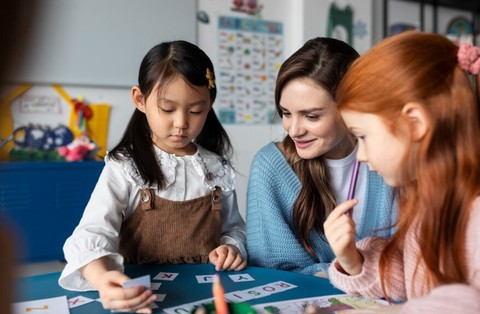
1. Critical Thinking dan Problem Solving: Fondasi Pemikiran Analitis
– Membangun Kemampuan Berpikir Kritis Sejak Dini
Critical thinking merupakan ability untuk objectively analyze information, evaluate evidence, dan make reasoned decisions tanpa dipengaruhi oleh bias atau emotional manipulation. Dalam era information overload dan fake news, kemampuan ini menjadi essential untuk navigating complex information landscape dan making informed decisions.
Anak-anak perlu dilatih untuk questioning assumptions, examining evidence dari multiple perspectives, dan identifying logical fallacies dalam arguments. Skills ini tidak hanya berguna untuk academic pursuits, tetapi juga untuk everyday decision making dan protecting diri mereka dari misinformation dan manipulation.
Development of critical thinking skills membutuhkan practice dalam analyzing real-world problems yang memiliki multiple solutions dan require weighing trade-offs. Case studies, debates, dan Socratic questioning methods dapat help children develop analytical thinking abilities yang sophisticated.
– Practical Applications dalam Pembelajaran
Encourage children untuk always ask “why” dan “how do you know?” ketika presented dengan information atau claims. Create environment di mana questioning adalah welcomed dan valued, rather than seen sebagai challenging authority.
Use problem-based learning approaches di mana students are presented dengan authentic, complex problems yang require research, analysis, dan synthesis of information dari multiple sources untuk arrive at solutions.
Implement regular reflection activities di mana children examine their own thinking processes, identify biases atau assumptions mereka, dan consider alternative viewpoints atau approaches to problems they’ve encountered.
2. Creativity dan Innovation: Catalyst untuk Solusi Masa Depan
– Nurturing Creative Mindset
Creativity bukan hanya tentang artistic expression, tetapi about generating novel ideas, making unexpected connections, dan finding innovative solutions untuk complex challenges. Dalam world yang increasingly automated, human creativity menjadi one of the most valuable dan irreplaceable assets.
Children naturally creative, tetapi traditional education systems often discourage risk-taking dan unconventional thinking dalam favor of standardized responses. Preserving dan nurturing innate creativity requires intentional effort untuk create safe spaces for experimentation dan acceptance of failure sebagai part of learning process.
Interdisciplinary thinking dan ability untuk connect ideas across different domains adalah key components of creative problem solving. Exposure to diverse fields, arts, sciences, dan cultures helps children develop broader perspective dan more extensive mental toolkit untuk creative expression.
– Fostering Innovation Through Play dan Exploration
Provide ample opportunities untuk unstructured play dan exploration, which are essential untuk developing creative thinking abilities. Play allows children untuk experiment freely, test boundaries, dan discover new possibilities without fear of failure.
Encourage divergent thinking activities di mana there are multiple correct answers atau approaches. Brainstorming sessions, “what if” scenarios, dan open-ended design challenges help children practice generating multiple solutions untuk single problems.
Introduce design thinking methodologies yang teach systematic approaches untuk innovation: empathize, define, ideate, prototype, dan test. These frameworks provide structure untuk creative processes while maintaining flexibility dan openness to unexpected discoveries.
3. Communication Skills: Building Bridges dalam Global Community
– Mastery of Multiple Communication Modes
Effective communication dalam abad 21 encompasses verbal, written, visual, dan digital communication across diverse platforms dan audiences. Children perlu comfortable expressing ideas clearly dan persuasively dalam various formats, from face-to-face conversations hingga social media posts dan multimedia presentations.
Listening skills are equally important sebagai speaking skills, particularly in diverse environments di mana understanding different perspectives dan cultural contexts adalah crucial untuk successful collaboration dan relationship building.
Storytelling abilities help children organize thoughts coherently, engage audiences emotionally, dan make complex ideas accessible to different groups. These skills are valuable across all fields, from business presentations hingga scientific explanations dan social advocacy.
– Digital Communication Competency
Social media literacy dan understanding of digital citizenship are essential components of modern communication skills. Children perlu understand how digital communications dapat be misinterpreted, how to maintain professional online presence, dan how to use technology untuk enhance rather than replace human connections.
Video communication skills are becoming increasingly important sebagai remote work dan virtual collaboration become more prevalent. Children should be comfortable presenting ideas melalui video platforms dan collaborating effectively dalam virtual environments.
Cross-cultural communication awareness helps children navigate global connectivity dengan sensitivity dan effectiveness. Understanding cultural differences dalam communication styles, non-verbal cues, dan social expectations prevents misunderstandings dan builds stronger international relationships.
Baca Juga – Tips Bangun Kebiasaan Belajar Positif Mulai dari 30 Menit Sehari
4. Collaboration dan Leadership: Teamwork untuk Success
– Building Effective Team Players
Collaboration skills extend beyond simply working together; they involve understanding team dynamics, leveraging individual strengths, managing conflicts constructively, dan achieving collective goals that exceed what individuals could accomplish alone.
Children perlu learn how to contribute meaningfully to teams while also supporting others’ contributions, providing constructive feedback, dan accepting criticism gracefully. These interpersonal skills are essential untuk virtually every career path dan social context.
Leadership opportunities should be distributed among team members rather than concentrating pada single individuals, helping children understand bahwa leadership adalah situational dan can be demonstrated dalam various ways depending pada context dan individual strengths.
– Developing Global Collaboration Skills
Virtual collaboration tools dan international project partnerships expose children to working dengan peers dari different cultural backgrounds, time zones, dan communication preferences. These experiences build adaptability dan cultural sensitivity.
Conflict resolution skills become particularly important dalam diverse teams di mana misunderstandings can arise dari cultural differences atau competing priorities. Teaching children to address conflicts directly dan respectfully helps maintain team cohesion dan productivity.
Project management basics, including planning, organizing resources, tracking progress, dan meeting deadlines, provide practical frameworks untuk successful collaboration dalam academic dan professional contexts.
5. Digital Literacy dan Technological Fluency: Navigating Digital World
– Beyond Basic Computer Skills
Digital literacy dalam abad 21 goes far beyond knowing how to use specific software atau devices. It encompasses understanding how technology works, evaluating digital information critically, dan using technology tools untuk enhance learning dan productivity across various domains.
Coding literacy, while not requiring professional-level programming skills, helps children understand logical thinking, problem decomposition, dan systematic approaches to task completion. These cognitive skills transfer to many non-technical areas dan provide foundation untuk lifelong technology learning.
Data literacy skills enable children to collect, analyze, dan interpret information effectively. Understanding basic statistics, reading charts dan graphs, dan drawing appropriate conclusions dari data are essential for informed decision making dalam data-driven world.
– Responsible Technology Use
Digital citizenship education covers online safety, privacy protection, intellectual property respect, dan ethical technology use. Children need understanding of digital footprints, cyberbullying prevention, dan responsible sharing of information.
Information evaluation skills help children distinguish between credible dan unreliable sources, identify bias atau manipulation dalam digital content, dan verify facts through multiple independent sources.
Understanding of artificial intelligence dan automation helps children prepare untuk world di mana they will collaborate dengan intelligent systems dan need to focus pada uniquely human capabilities that complement technological capabilities.
6. Adaptability dan Lifelong Learning: Embracing Change
– Developing Growth Mindset
Growth mindset, the belief bahwa abilities dapat be developed through effort dan learning, is fundamental untuk thriving dalam rapidly changing world. Children dengan growth mindset are more resilient dalam face of challenges dan more willing to take risks necessary untuk learning dan innovation.
Learning agility involves not just acquiring new information, tetapi also unlearning outdated concepts dan adapting mental models to new realities. This flexibility is essential ketika industries, technologies, dan social norms evolve rapidly.
Curiosity dan intrinsic motivation untuk learning ensure bahwa children will continue seeking new knowledge dan skills throughout their lives, regardless of formal educational opportunities atau career requirements.
– Building Resilience dan Persistence
Failure tolerance dan ability to learn dari mistakes are crucial untuk innovation dan growth. Children perlu understand bahwa setbacks are normal part of learning process dan opportunities untuk improvement rather than indications of inadequacy.
Goal setting dan self-regulation skills help children take ownership of their learning journey dan develop internal motivation untuk continuous improvement. These metacognitive abilities become increasingly important sebagai learning becomes more self-directed.
Stress management dan emotional regulation capabilities ensure bahwa children can maintain performance dan wellbeing during periods of uncertainty atau high demand yang characterize modern work environments.
7. Emotional Intelligence dan Social Awareness: Human Connection Skills
– Understanding dan Managing Emotions
Emotional intelligence encompasses self-awareness, self-regulation, empathy, dan social skills yang enable effective relationships dan collaboration. These capabilities become more valuable sebagai technical skills become commoditized dan human interaction remains central to most meaningful work.
Self-awareness helps children understand their emotional triggers, strengths, dan areas untuk improvement. This understanding enables better decision making dan more authentic relationships dengan others.
Empathy dan perspective-taking abilities allow children to understand dan relate to people dari diverse backgrounds dan experiences. These skills are essential untuk effective leadership, customer service, dan community engagement.
– Building Cultural Competency
Global awareness dan appreciation untuk diversity prepare children untuk increasingly multicultural world. Understanding different cultural values, communication styles, dan social norms prevents misunderstandings dan enables more effective collaboration.
Social justice awareness dan commitment to equity help children understand their role dalam creating more inclusive communities dan organizations. These values drive positive social change dan create more sustainable business practices.
Community engagement skills enable children to contribute meaningfully to their local dan global communities, understanding bahwa individual success is connected to collective wellbeing dan social progress.
Implementation Strategies untuk Parents dan Educators
– Creating Supportive Learning Environments
Design learning experiences yang integrate multiple 21st-century skills simultaneously rather than teaching them dalam isolation. Real-world projects yang require research, creativity, collaboration, dan presentation skills provide authentic contexts untuk skill development.
Encourage experimentation dan risk-taking dengan providing safety nets that allow children to fail safely dan learn dari mistakes. Celebrate effort dan improvement rather than just final results to reinforce growth mindset.
Provide access to diverse experiences, including international exchanges, community service projects, internships, dan mentorship opportunities yang expose children to different perspectives dan real-world applications of their skills.
– Assessment dan Progress Monitoring
Develop assessment methods yang measure process dan thinking skills rather than just content knowledge. Portfolio assessments, peer evaluations, dan self-reflection activities provide more comprehensive pictures of student development.
Use formative assessments yang provide ongoing feedback dan opportunities untuk improvement rather than summative evaluations yang simply judge final performance. This approach supports continuous learning dan skill refinement.
Track development across all skill areas to ensure balanced growth dan identify areas yang need additional support atau enrichment opportunities.
– Professional Development for Educators
Provide ongoing training untuk teachers dalam 21st-century pedagogy, technology integration, dan project-based learning approaches. Educators need to model these skills themselves to effectively teach them to students.
Create professional learning communities di mana educators can collaborate, share best practices, dan support each other dalam implementing innovative teaching approaches.
Connect schools dengan industry professionals, community organizations, dan global networks to provide authentic contexts untuk learning dan real-world mentorship opportunities untuk both students dan teachers.
Kesimpulan
Tujuh keterampilan abad 21 yang harus dimiliki anak sekolah sejak dini – critical thinking, creativity, communication, collaboration, digital literacy, adaptability, dan emotional intelligence – form integrated foundation untuk success dalam rapidly evolving world. These skills are not separate competencies but interconnected capabilities yang reinforce dan enhance each other.
Early development of these skills provides significant advantages karena they become more challenging to acquire later dalam life ketika neural plasticity decreases dan established patterns of thinking become more rigid. Investment dalam comprehensive skill development during childhood yields lifelong dividends dalam personal fulfillment, career success, dan social contribution.
Success dalam fostering these capabilities requires collaborative effort between parents, educators, dan communities to create rich, supportive learning environments yang challenge children appropriately while providing necessary support untuk growth dan development. The goal is not just to prepare children untuk specific careers, tetapi to develop adaptable, thoughtful, dan capable individuals who can thrive dalam whatever future emerges.

